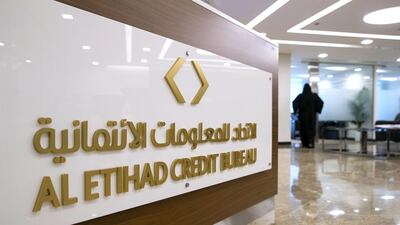Having worked in small businesses my whole working life, banks are as close to me as my Australian half uncle Marco. As with my bank manager, I’ve never met Marco.
After all, my business hasn’t reached two years old yet, so it isn’t considered by any banks for loans.
And, as I have discovered, this also means that my staff and I have incredible difficulty securing any personal loans or credit cards simply because we work for a smaller, younger business.
As a director of the company, I do wonder why my access to personal funding is worse than a junior in a large company and why the size and duration of my business is such a determining factor for my personal finances? In the very best scenario I may be able to receive small funding but at much higher rates, which doesn’t appeal to me either.
It’s hard not to feel frustrated as it’s just another difficulty for entrepreneurs, when we have enough stacked against us already. However, I once applied for corporate finance for one of my more mature businesses and noticed something that allowed me to somewhat sympathise with the banks.
When going through the tediously long process to acquire a loan, I asked why they needed so much information, most of which seemed unnecessary.
The answer that came back was quite simple: there are a significant amount of borrowers who leverage up from multiple banks at the same time and the banks cannot be sure if a borrower has taken multiple loans or if that borrower has a bad history of defaulting on loans. Hence banks lose a lot of money through bad debts and are “once bitten twice shy”, even if this does make life harder for those prudent and honest borrowers.
The banks operate in a difficult environment to lend money profitably to good institutions. There is hope on the horizon since the Al Etihad Credit Bureau has been working to introduce credit reporting for individuals and businesses to allow banks and other businesses to quickly check an applicant’s credit worthiness.
Although a launch date for rolling out the credit score nationwide has not been set, the Credit Bureau has been operational since 2014 collecting data and you can request your own credit report.
Those who have lived in developed nations will be familiar with the credit rating system and whether you like them or not, it is a key function of a banking system as it allows financial institutions to access information on borrowers and assess the credit worthiness quickly.
This does of course make borrowing more difficult for those that can’t maintain a good credit history but it makes it quicker and easier to get better terms for those that do. This is a positive move for the UAE as historically the banks couldn’t assess your financial responsibility and treated everyone as potentially bad debts.
We don’t have to remember too far back to when the streets close to the Dubai airport were littered with abandoned cars covered by an inch of dust because people weren’t able to or didn’t want to pay back the loans on those vehicles.
To flee was a simple decision for many who had lost their jobs at the time; they could start again in another country and their bad credit history in the UAE was unrecognised.
When credit scoring is introduced, however, this information will be accessible to banks in other countries when you apply for loans. Hopefully this will reduce the incentives of this type of action and ensure banks don’t get so badly stung in a bad economic period.
Of course credit scoring isn’t the only component of an efficient financial system; there are many other factors needed to support this such as robust bankruptcy laws, repossession laws and a thorough way to check for lien on assets so banks can clarify whether collateral has already been lent against.
These too have made long strides in the UAE and continue to develop.
I feel all of this will pose positive outcomes for SMEs that are getting the short straw because banks don’t have a good system to fairly assess them. If credit scoring does what it intends to then default rates on loans will decrease, which will allow lending to ease and rates to come down, benefiting the business sector.
Although a launch date has not been announced, the banking sector and business community will benefit enormously when we see this in action.
Paris Norriss is an entrepreneur and partner in Coba Education, which provides educators to schools and institutes
business@thenational.ae
Follow The National's Business section on Twitter

